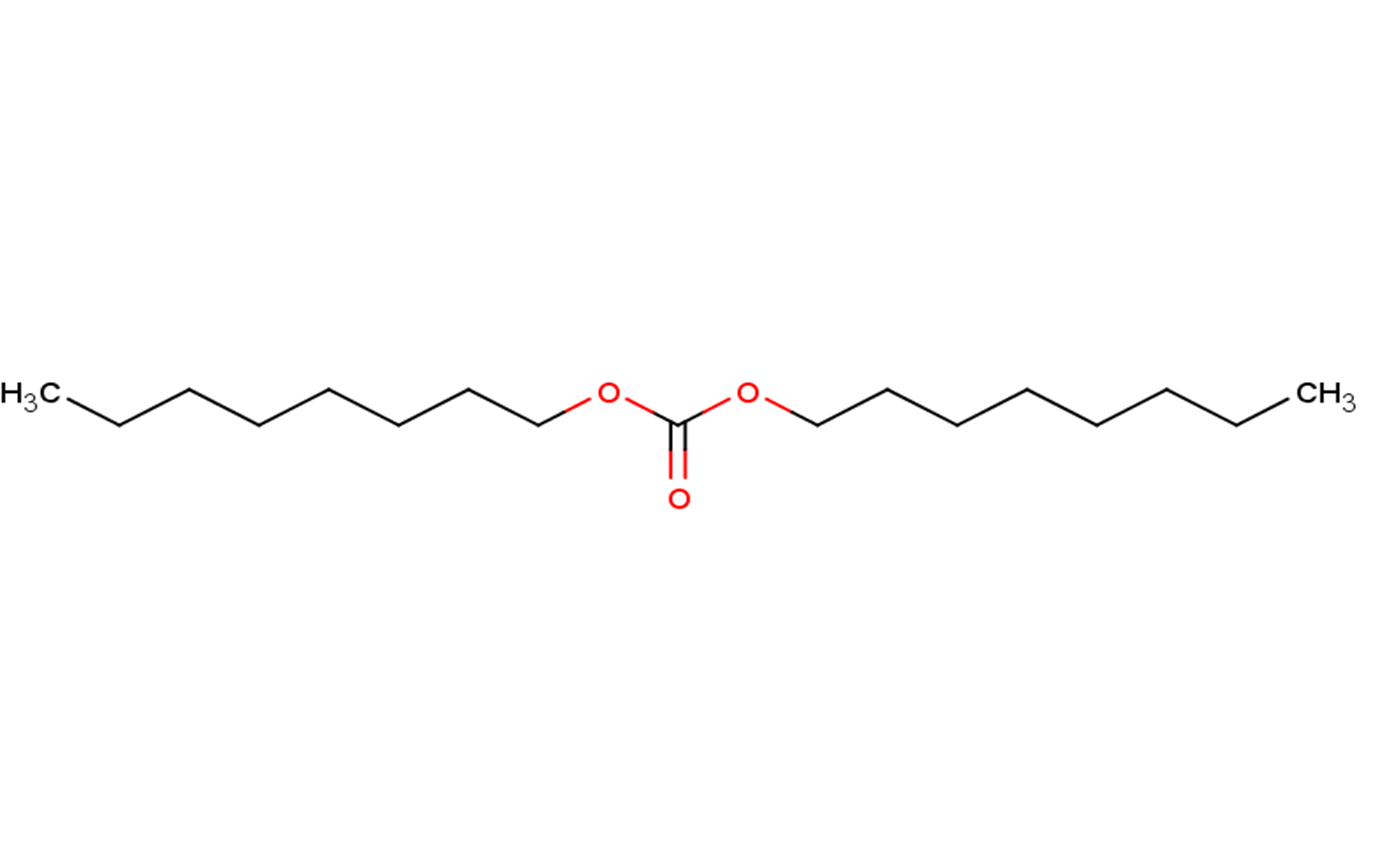
Dicaprylyl carbonate
CAS No. 1680-31-5
Dicaprylyl carbonate( Dimethyl carbonate )
Catalog No. M23754 CAS No. 1680-31-5
Dicaprylyl carbonate is a solid fat derived from plants and a dry emollient.
Purity : >98% (HPLC)
 COA
COA
 Datasheet
Datasheet
 HNMR
HNMR
 HPLC
HPLC
 MSDS
MSDS
 Handing Instructions
Handing Instructions
| Size | Price / USD | Stock | Quantity |
| 500MG | 35 | In Stock |


|
| 1G | Get Quote | In Stock |


|
Biological Information
-
Product NameDicaprylyl carbonate
-
NoteResearch use only, not for human use.
-
Brief DescriptionDicaprylyl carbonate is a solid fat derived from plants and a dry emollient.
-
DescriptionDicaprylyl carbonate is a solid fat derived from plants and a dry emollient. Dimethyl carbonate has good skin compatibility and comprehensive properties, such as a sunscreen filter with the ability to dissolve and disperse.
-
In VitroDicaprylyl carbonate has a respective shininess value of 389.8. Dicaprylyl carbonate is evaluated as having a matte to satiny finish.
-
In Vivo——
-
SynonymsDimethyl carbonate
-
PathwayOthers
-
TargetOther Targets
-
RecptorOthers
-
Research Area——
-
Indication——
Chemical Information
-
CAS Number1680-31-5
-
Formula Weight286.45
-
Molecular FormulaC17H34O3
-
Purity>98% (HPLC)
-
SolubilityDMSO:5 mM
-
SMILESO=C(OCCCCCCCC)OCCCCCCCC
-
Chemical Name——
Shipping & Storage Information
-
Storage(-20℃)
-
ShippingWith Ice Pack
-
Stability≥ 2 years
Reference
1.JumatSalimon, et al. Industrial development and applications of plant oils and their biobased oleochemicals. Arabian Journal of Chemistry, Volume 5, Issue 2, April 2012, Pages 135-145.
molnova catalog



related products
-
PLP 139-151
PLP (139-151) is amino acid residue residue 139 to 151 of myelin proteolipid protein (PLP). This peptide is used to induce relapsing-remitting (RR)-EAE model.
-
Sodium 5-((2-aminoet...
Sodium 5-((2-aminoethyl)amino)naphthalene-1-sulfonate is a donor for developing FRET-based nucleic acid probes that is widely used in real time PCR assays.?
-
Calcium gluconate
Calcium gluconate is a mineral supplement, manufactured by the neutralization of gluconic acid with lime or calcium carbonate.



 Cart
Cart
 sales@molnova.com
sales@molnova.com


